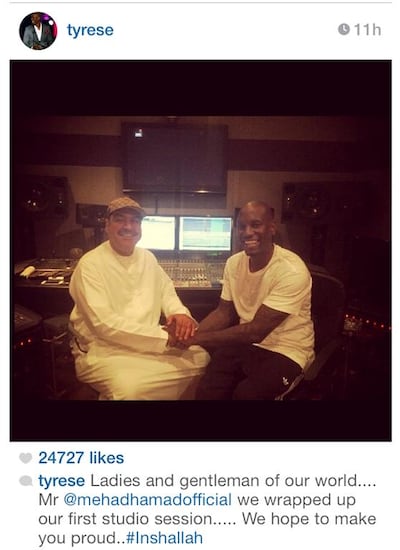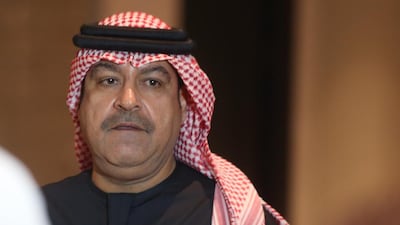If you are surprised that Mehad Hamad is performing at the Abu Dhabi Cultural Foundation on Thursday, September 12, then are probably not a hardcore fan. However, you can also be excused for the oversight.
That’s because the veteran Emirati singer doesn’t do social media, rarely appears on television and hardly does interviews.
The Sharjah singer is an enigma, the UAE’s very own Johnny Cash.
Like the man in black, our man in white carries an air of authenticity and a charisma that’s channelled through his gruff odes to the desert and a UAE life long before the sky scrapers arrived.
Not only does he sing about an increasingly forgotten era, Hamad embodies its values. This was pretty much on display when he granted the UAE press a rare press conference in Abu Dhabi 2014.
When I inquired about his public silence, his reply was polite yet revealing.
“I figured that as an artist, I should not be doing interviews if I really have nothing to say,” he said.
If only today’s crop of young singers followed such an approach. That relentless focus on quality is not only evident in what Hamad says but what he produces.
How his album became an Emirati classic
That press conference surrounded his new album La Tardini Hudud, his first proper release of original songs in over a decade — the CDs prior were collections of songs he dropped over the years.
The album remains a classic of the Emirati folk genre. In addition to maintaining its key characteristics — such as the syncopated beats, assertive oud pickings and lyrics about love of family, tribe and nation sung in an almost Bedouin dialect — the collection also fused some interesting western elements.
They are exemplified in jagged electric piano riffs that introduces Dayem Abali, the flamenco guitar touches of Sert Batwaada and the opening pastoral notes of Thaa Elwofaa, which almost sounds Celtic.
While all these tunes are evocative, none matched the quality of Shafaqat Bareq Lelah. The song was easily a local hit and you would be hard pressed not to hear it blaring out of an SUV on the Abu Dhabi Corniche each weekend.
It also sounds so downright cool. The track begins with a bluesy guitar riff that John Lee Hooker would have been proud off – this is met by a group of male vocalists who sketch out the song’s melodic and lyrical themes. After which, Hamad arrives, his thick and weary voice is bewitchingly juxtaposed with flamboyantly romantic lyrics. He describes a love ‘that is the medicine for the wounded” and how “it is a house enshrined in light”.
It sounds so sensitive yet masculine at the same time – a quality in which he has perfected over the decades.
Showcasing the UAE's hospitality
It was no wonder that he was tapped by Vin Diesel and Tyrese, when the Hollywood stars came as in Abu Dhabi in April 2014, to shoot scenes for Furious 7, to contribute a track to the film.

While the resulting jam session with Tyrese, who himself is a decent soul singer, didn't bear fruit, Hamad gifted the actor an oud. Not because he was a fan — Hamad admitted to not knowing who he was prior to the meeting — but because it is the Emirati way.
“When somebody travels to your country and requests to see you, you have to show the respect and meet this gentleman,” he said. “This doesn’t matter whether he is a celebrity or not. This is why Emiratis are known for their hospitality.”
To get a deeper understanding of the culture and traditions of this country we call home, you will be hard pressed to find a better option on Thursday than a concert by this grizzled Emirati folk hero.
Mehad Hamad performs on Thursday, September 12 at the Abu Dhabi Cultural Foundation. Tickets begin from Dh210 at the culturalfoundation.ae


